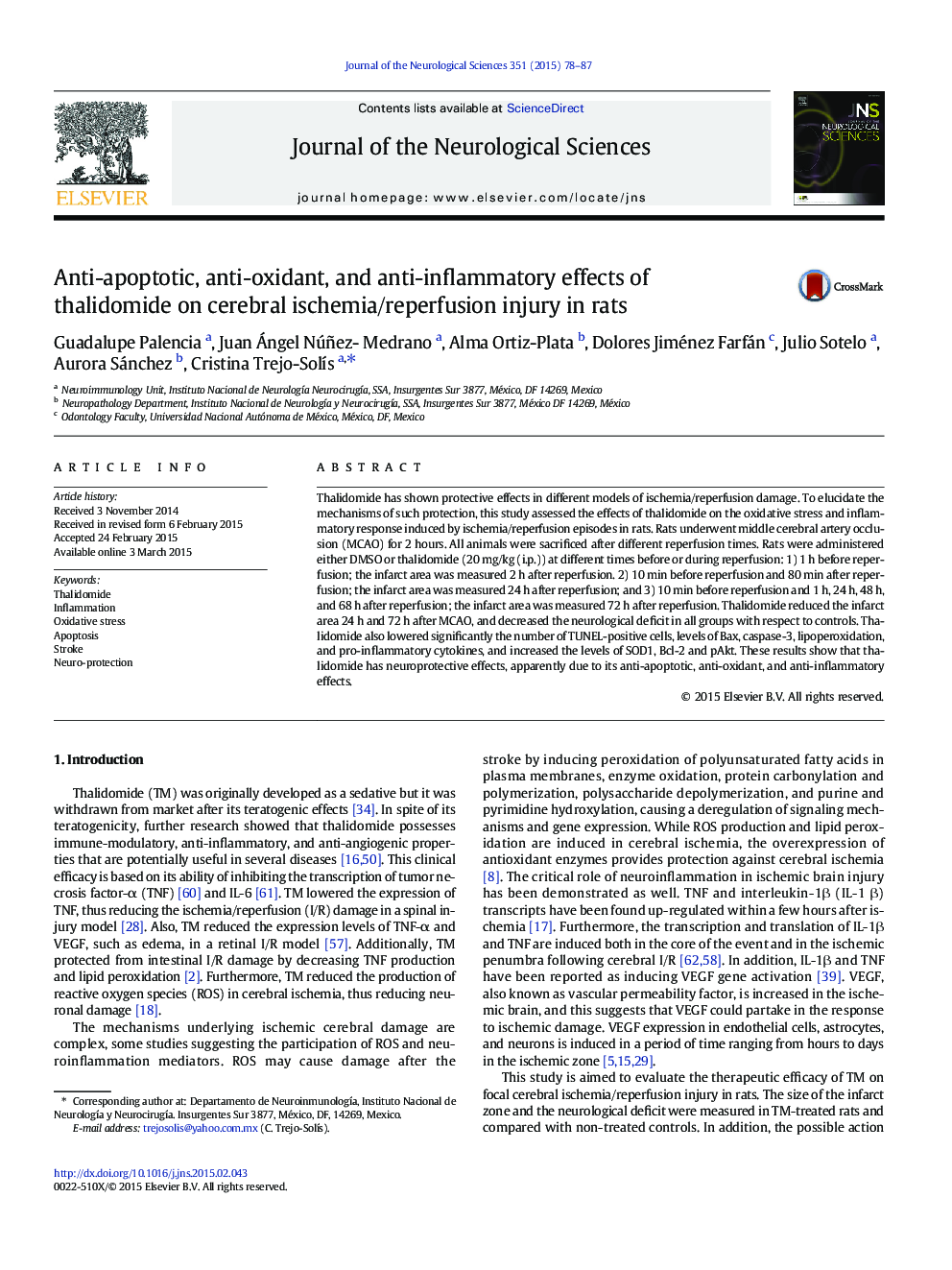| Article ID | Journal | Published Year | Pages | File Type |
|---|---|---|---|---|
| 1913255 | Journal of the Neurological Sciences | 2015 | 10 Pages |
•The TM exhibits protective effects against cerebral I/R in rats.•The TM apoptotic markers.•The TM decreased the oxidative stress and pro-inflammatory cytokines.•The TM increased the Akt and Bcl-2 levels.
Thalidomide has shown protective effects in different models of ischemia/reperfusion damage. To elucidate the mechanisms of such protection, this study assessed the effects of thalidomide on the oxidative stress and inflammatory response induced by ischemia/reperfusion episodes in rats. Rats underwent middle cerebral artery occlusion (MCAO) for 2 hours. All animals were sacrificed after different reperfusion times. Rats were administered either DMSO or thalidomide (20 mg/kg (i.p.)) at different times before or during reperfusion: 1) 1 h before reperfusion; the infarct area was measured 2 h after reperfusion. 2) 10 min before reperfusion and 80 min after reperfusion; the infarct area was measured 24 h after reperfusion; and 3) 10 min before reperfusion and 1 h, 24 h, 48 h, and 68 h after reperfusion; the infarct area was measured 72 h after reperfusion. Thalidomide reduced the infarct area 24 h and 72 h after MCAO, and decreased the neurological deficit in all groups with respect to controls. Thalidomide also lowered significantly the number of TUNEL-positive cells, levels of Bax, caspase-3, lipoperoxidation, and pro-inflammatory cytokines, and increased the levels of SOD1, Bcl-2 and pAkt. These results show that thalidomide has neuroprotective effects, apparently due to its anti-apoptotic, anti-oxidant, and anti-inflammatory effects.
Graphical abstractFigure optionsDownload full-size imageDownload high-quality image (44 K)Download as PowerPoint slide
